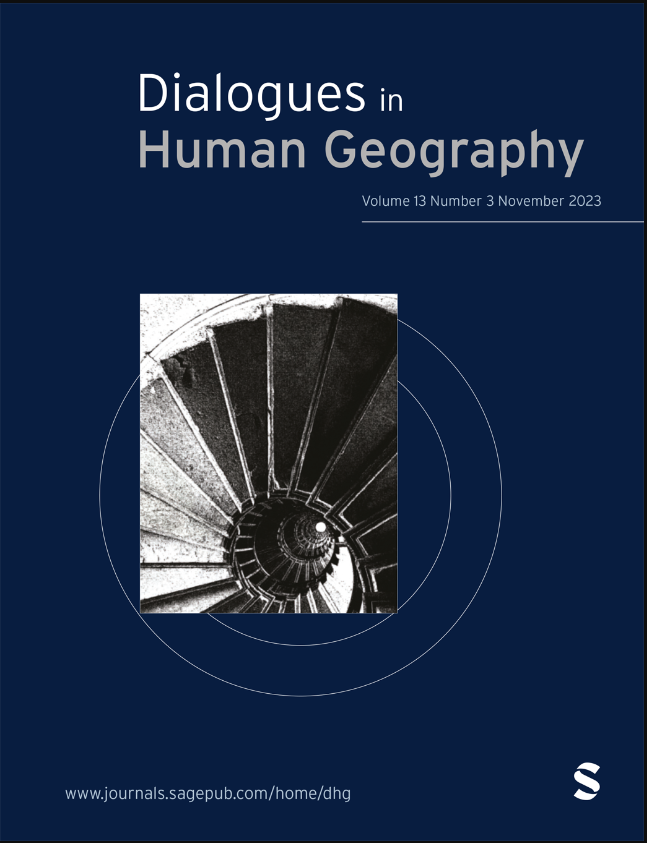澄清断裂:作者的回答
IF 9.6
1区 社会学
Q1 GEOGRAPHY
引用次数: 0
摘要
在我们的文章《断裂:走向自然-社会危机的批判、就业和经验观》中,我们主张对环境危机及其催化作用有丰富而批判性的理解。这篇作者的回复回应了四篇评论,作者提出了有益的问题和见解。我们首先回顾了特定破裂事件与正在进行的开采和开采过程之间的空间和时间联系。然后,我们讨论破裂的影响如何不成比例地落在对危机贡献最小的人身上。第三,我们澄清了我们对破裂的丰富背景观点与人类世等行星分析的不同之处。就破裂的影响而言,我们同意这样的评论,即破裂不仅代表了一种希望政治,而且可以加强独裁利益。最后,我们澄清了什么是“让破裂发挥作用”。本文章由计算机程序翻译,如有差异,请以英文原文为准。
Clarifying rupture: An authors’ reply
In our article, ‘Rupture: Towards a Critical, Emplaced, and Experiential View of Nature-Society Crisis’, we advocated for contextually rich and critical understandings of environmental crises and their catalytic effects. This authors’ reply responds to four commentaries whose authors raise helpful questions and insights. We first review the spatial and temporal connections between specific rupture episodes and ongoing processes of extraction and exploitation. We then discuss how the impacts of rupture disproportionately fall to those with the smallest contribution to the crisis. Third, we clarify how our contextually rich view of rupture differs from planetary analytics such as the Anthropocene. In terms of rupture's effects, we agree with comments that rupture does not simply represent a politics of hope but can strengthen authoritarian interests. Finally, we clarify what it means to ‘put rupture to work’.
求助全文
通过发布文献求助,成功后即可免费获取论文全文。
去求助
来源期刊

Dialogues in Human Geography
GEOGRAPHY-
CiteScore
8.00
自引率
4.00%
发文量
86
期刊介绍:
Dialogues in Human Geography aims to foster open and critical debate on the philosophical, methodological, and pedagogical underpinnings of geographic thought and practice. The journal publishes articles, accompanied by responses, that critique current thinking and practice while charting future directions for geographic thought, empirical research, and pedagogy. Dialogues is theoretically oriented, forward-looking, and seeks to publish original and innovative work that expands the boundaries of geographical theory, practice, and pedagogy through a unique format of open peer commentary. This format encourages engaged dialogue. The journal's scope encompasses the broader agenda of human geography within the context of social sciences, humanities, and environmental sciences, as well as specific ideas, debates, and practices within disciplinary subfields. It is relevant and useful to those interested in all aspects of the discipline.
 求助内容:
求助内容: 应助结果提醒方式:
应助结果提醒方式:


